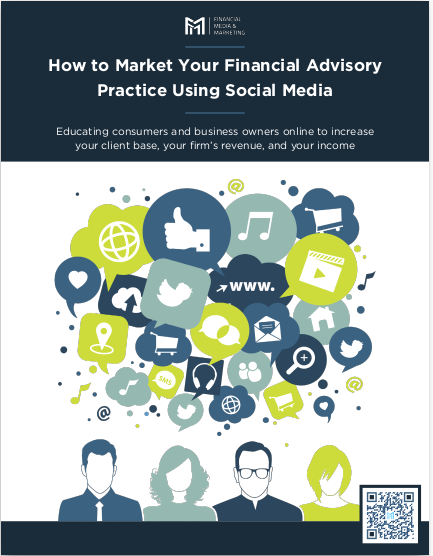Key Takeaways:
-
The subject line is the most crucial factor in getting your email opened, and using psychology-backed strategies can significantly boost open rates.
-
Personalization, urgency, and curiosity are three powerful elements that make financial advisor emails stand out in crowded inboxes.
Why Your Subject Line Can Make or Break Your Email Campaign
You spend time crafting the perfect email, outlining valuable insights for your prospects, but if your subject line falls flat, your message never sees the light of day. In 2025, the average email user receives over 120 emails per day, making it harder than ever to capture attention. For financial advisors, standing out in a sea of generic emails means getting strategic about your subject lines. The right choice can drastically increase your open rates, boost engagement, and ultimately bring in more clients.
1. Use Personalization to Connect Instantly
People love seeing their names in emails, but true personalization goes beyond just inserting a first name. In 2025, data-driven marketing allows financial advisors to craft subject lines that feel tailored to each recipient.
Examples of Personalized Subject Lines:
-
“[First Name], Here’s How You Can Save More for Retirement in 2025”
-
“A Custom Investment Strategy for You, [First Name]”
-
“[First Name], Your 2025 Financial Roadmap Awaits”
By referencing specific pain points, financial goals, or recent market trends, you make your emails feel directed at individuals rather than a mass audience. Studies show that emails with personalized subject lines see a 29% higher open rate compared to generic ones.
2. Create a Sense of Urgency (But Don’t Overdo It)
Urgency is a proven psychological trigger that compels people to take action. When people feel they might miss out on an opportunity, they’re more likely to open your email. However, using urgency too often can come off as spammy or desperate.
Subject Lines That Work:
-
“Last Chance to Lower Your 2025 Tax Bill”
-
“This Market Shift Could Impact Your Portfolio – Act Now”
-
“Important: Financial Rule Changes Coming Next Month”
The key to urgency is providing real value rather than forcing artificial panic. If your email content truly addresses a time-sensitive concern, your subject line will feel genuine and compelling.
3. Pique Curiosity Without Being Too Vague
Curiosity is a powerful tool in subject lines. When you leave readers wanting more, they’re more likely to click to find out the answer. However, it’s important to strike a balance between intriguing and misleading.
Effective Curiosity-Based Subject Lines:
-
“The #1 Investment Mistake Advisors See in 2025”
-
“Are You Making This Costly Retirement Planning Error?”
-
“What Top Investors Know That You Don’t (Yet)”
The goal here is to spark interest while still being relevant to your audience. If your subject line is too vague, it won’t create enough intrigue. If it’s too misleading, you risk frustrating your audience, leading to unsubscribes.
4. Leverage Numbers and Data for Instant Credibility
Numbers help emails stand out. Whether it’s percentages, dollar amounts, or specific timelines, numerical figures instantly convey value and trustworthiness. People are more likely to open an email when they know they’ll get quick, digestible insights.
Examples:
-
“5 Smart Ways to Maximize Your Wealth in 2025”
-
“How to Cut Your Tax Burden by 30% This Year”
-
“7 Retirement Myths You Need to Stop Believing”
Research shows that subject lines with numbers increase open rates by 21%. Why? Because they create the expectation of a structured, easy-to-read format.
5. Ask a Thought-Provoking Question
Questions make people pause. When you pose a thought-provoking question, your audience will feel compelled to click through to see the answer.
Engaging Question-Based Subject Lines:
-
“Is Your Retirement Plan Future-Proof?”
-
“What’s Your Financial Plan Missing?”
-
“How Secure Is Your Investment Strategy?”
The secret to an effective question-based subject line is to tap into a concern or aspiration your audience already has. Make it relevant to their financial situation, and you’ll increase the likelihood of a click.
Avoid These Common Subject Line Mistakes
Now that you know what works, let’s talk about what doesn’t. Some subject lines can actively hurt your open rates and even get your emails marked as spam. Here are a few mistakes to avoid:
Overuse of Capital Letters and Exclamation Points
-
BAD: “URGENT!!! YOU NEED TO READ THIS NOW!!!”
-
GOOD: “Important Update on 2025 Retirement Rules”
Clickbait That Doesn’t Deliver
-
BAD: “You Won’t Believe This Investment Secret!”
-
GOOD: “3 Under-the-Radar Investment Opportunities for 2025”
Too Generic or Boring
-
BAD: “Financial Planning Tips”
-
GOOD: “5 Must-Know Financial Moves for 2025”
Your subject line sets expectations. If your content doesn’t match the promise, your audience will lose trust in your emails, reducing your open rates over time.
A/B Testing: Your Best Friend for Finding the Perfect Subject Line
Even the best marketers don’t get it right on the first try. That’s why A/B testing is essential. By testing different variations of subject lines, you can determine what resonates most with your audience.
How to A/B Test Subject Lines:
-
Segment Your Email List: Split your audience into two random, equal groups.
-
Send Two Versions: Each group receives the same email but with a different subject line.
-
Analyze the Results: Compare open rates, click-through rates, and engagement.
-
Use What Works: Apply insights from the winning subject line to future emails.
Testing should be ongoing, as audience preferences shift over time.
Crafting the Perfect Subject Line for Financial Advisors in 2025
In the fast-paced digital world, grabbing attention in a crowded inbox is an art. As a financial advisor, your emails are only as powerful as their open rates. By leveraging personalization, urgency, curiosity, data, and questions, you can consistently improve engagement and turn email subscribers into loyal clients.
Fine-tune your subject lines, experiment with A/B testing, and watch your email marketing efforts pay off.










